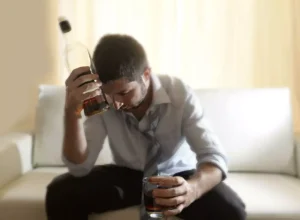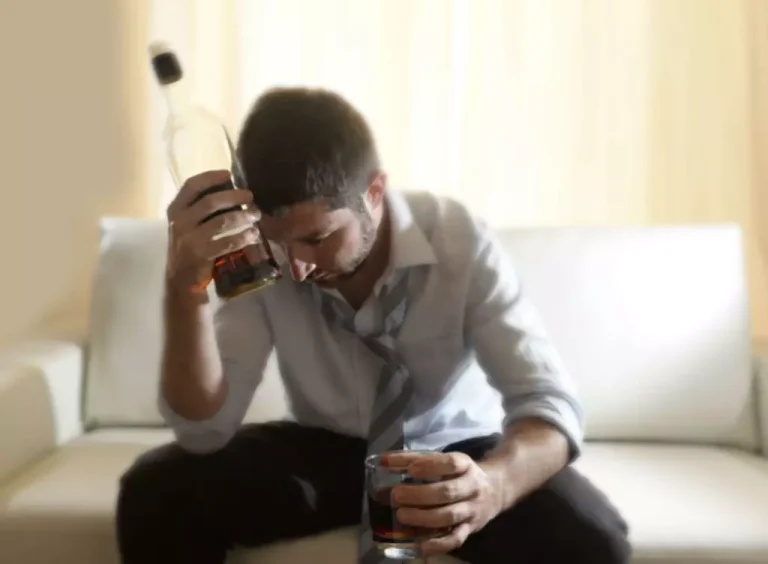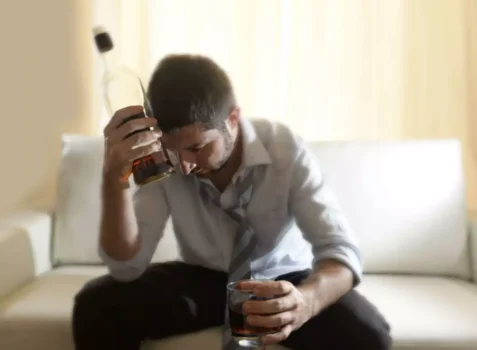
Research shows that regular alcohol intake can reduce sleep quality over time, potentially causing issues such as insomnia. It also covers what symptoms you might have if you don’t wait long enough between having your last drink and going to bed. REM sleep behavior disorder, also known as rapid eye movement sleep behavior disorder (RBD) is a condition in which individuals experience realistic, often frightening dreams during the REM sleep stage. This may result in the person verbally or physically acting out their dreams, which may cause abnormal behaviors such as kicking, flailing, jumping or yelling during sleep. If left untreated, chronic sleep apnea can drastically impact your quality of life and lead to serious health concerns, such as weight gain and obesity, hypertension, stroke, memory impairment and heart failure. Below, we’ll take a closer look at how alcohol affects the different stages of sleep, as well as how the quantity and timing of alcohol can influence sleep quality.
Tips for Sleeping Better if You Plan to Have a Drink or Two
- Julia Pietilä, a researcher at the Faculty of Biomedical Sciences and Engineering at Tampere University of Technology in Finland, is the first author of the paper, which was published in the journal JMIR Mental Health.
- Alcohol also relaxes your throat muscles, which can worsen snoring and sleep apnea.
- We were thus able to look at long-term drinking typologies and persistent sleep problems over three decades.
- “Even if alcohol initially helps someone fall asleep, they may wake up many times throughout the night or not get into a deep sleep,” she continues.
- Alcohol use can impact the quality of your sleep, and research confirms there’s a link between alcohol use and insomnia.
It’s characterized by difficulty falling asleep, staying asleep, or both. This means people with insomnia have an increased risk of alcohol and substance use disorders. With extended use of alcohol over time, alcohol insomnia there can be long-term concerns, too. Many who abuse alcohol often do it well into the night and oversleep into the next day. In time this may lead to switching up day and night sleeping patterns.

Wait Between Drinking and Bedtime
Normal sleep cycles through four stages, which are either considered rapid eye movement (REM) sleep or non-REM sleep. Alcohol further increases the effects of sleep apnea by relaxing the muscles in the throat, collapsing the upper airway and lowering oxygen levels. This not only worsens pre-existing sleep apnea but may also lead to episodes of sleep apnea in individuals who previously did not experience it. REM sleep is vital for healthy brain development, the National Sleep Foundation noted.

Alcohol and Insomnia: How Alcohol Affects Sleep
The influence of alcohol on sleep therefore needs to be evaluated by exploring both the short term effects on sleep (cross sectional data) and the long-term consequences (longitudinal data of repeated measures). At present, most literature is based on cross-sectional studies and thus cannot assess direction of effects6. Being a sedative and depressant of the central nervous system, alcohol can increase feelings of tiredness and sluggishness. One of the side effects of alcohol is drowsiness, so it can make you fall asleep quickly. If https://ecosoberhouse.com/article/how-to-stop-drinking/ a person chooses to consume alcohol, drinking in moderation several hours before bed is the best practice for avoiding sleep disturbances. Individuals living with AUD experience much poorer sleep quality than those who consume moderate amounts of alcohol.

Night Eating Syndrome: Symptoms, Causes, and Treatments
- Treating anxiety can help reduce insomnia and improve overall sleep quality.
- However, people who drink alcohol before bed often experience disruptions later in their sleep cycle.
Then, as withdrawal from the drug or alcohol occurs there’s a big sleep-wake reversal which then needs to be addressed. The good news is that these sleep disruptions are temporary, and any insomnia you experience will likely resolve as you persevere through recovery. You may experience your most severe sleep disturbances in the first week, but most people find that it eases up with time.
Circadian Rhythm Disruptions
In addition, since poor sleep can negatively affect one’s health, the benefits of a restful night go beyond feeling alert in the morning. Over time, poor quality sleep can have a negative influence on many different aspects of your life, including your long-term health. If you’re experiencing sleeping issues, whether related to alcohol consumption or not, consider talking to your health care provider or a sleep specialist. “Even if alcohol initially helps someone fall asleep, they may wake up many times throughout the night or not get into a deep sleep,” she continues. A number of effective pharmacological and nonpharmacological treatment options exist to manage insomnia.

How many hours before bed should you stop drinking?
Ultimately, alcohol can decrease the amount and quality of sleep you get. They may turn to alcohol to reduce their anxiety symptoms, which also increases insomnia, exacerbating their anxious feelings. Consuming alcohol may present a higher risk of developing sleep apnea. In a 2018 study, researchers found that alcohol increases this risk by 25%. People who drink alcohol before sleep are also more likely to experience breathing difficulties at night. They will also experience shorter periods of sleep, resulting in less restful sleep overall.
Surprising Ways Hydration Affects Your Sleep
- If you’re experiencing sleeping issues, whether related to alcohol consumption or not, consider talking to your health care provider or a sleep specialist.
- There are few other longitudinal population based studies with which to compare our findings.
- If you think you may have a sleep problem or disorder, consider taking our brief sleep quiz to find out.
- People with alcohol use disorder experience insomnia at higher rates than those who don’t abuse alcohol.
- It’s best to treat any co-occurring disorders with proper detoxing from alcohol use to avoid severe withdrawal symptoms.
Alcohol has a direct effect on circadian rhythms, diminishing the ability of the master biological clock to respond to the light cues that keep it in sync. Those effects of alcohol on the biological clock appear to persist even without additional drinking, according to research. Many people with insomnia may have difficulty falling asleep at night.
